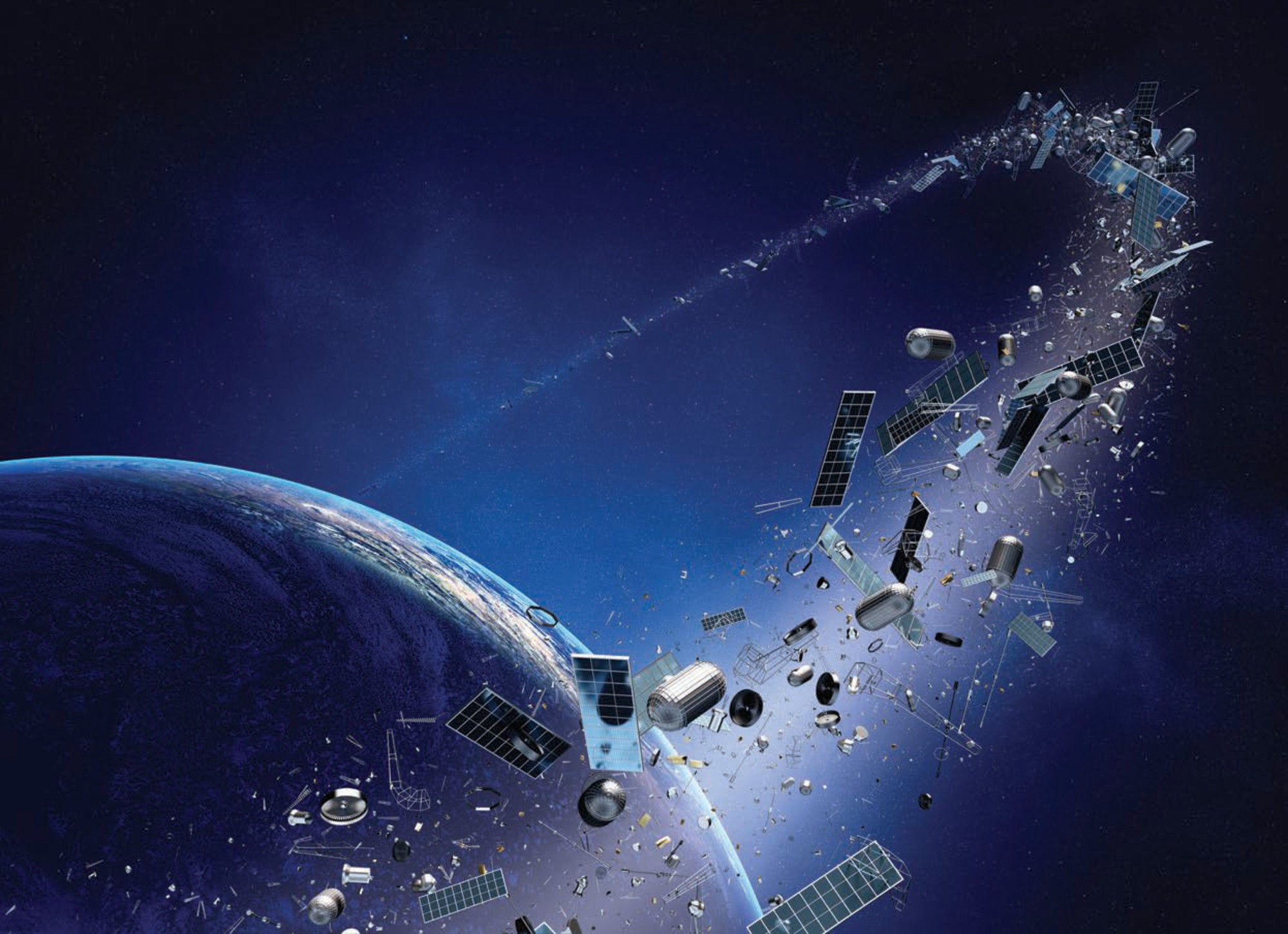Over the past two decades, the rapid deployment of satellites has transformed Earth’s orbits from domains dominated by government agencies to bustling hubs of commercial activity. This surge, with annual satellite launches escalating from 200 in 2013 to over 2 600 in 2023, underscores the pivotal role of space infrastructure in modern society. Satellites now facilitate essential functions such as telecommunications, financial transactions, and global connectivity, with the potential to bridge the digital divide for millions in remote regions.
Commercial constellations are growing and raising environmental concerns
A significant catalyst for this growth is the proliferation of commercial satellite constellations, particularly those designed to deliver broadband internet via low-earth orbits. Projects envisioning hundreds of thousands of satellites promise to revolutionise connectivity and expand digital access globally. However, this rapid deployment raises legitimate concerns about the environmental impact of space activities.
The foremost concern is the accumulation of space debris, a byproduct of routine operations, collisions, and historical anti-satellite tests. Tracked debris objects account for only about 4% of the estimated harmful debris population greater than 1 cm, which surpasses 1 million objects (overall, there may be more than 100 million objects larger than 1mm in orbit). This disparity could skew perceptions of risks among space system operators, insurers, and investors, potentially creating a false sense of security and artificially lowering the costs of operating safely in the orbital environment.
Responsibility is concentrated and mitigation needs are urgent
A few key actors are responsible for the majority of catalogued space debris objects. Countries like the United States, China, and Russia, alongside European countries and Japan, top the list of contributors, reflecting their long history as space-faring nations. This concentration highlights the need for co-ordinated international efforts to mitigate debris creation and manage orbital traffic effectively.
Many debris objects stem from inadequate end-of-life strategies, such as the absence of passivation (removing stored energy like unused propellant or batteries) or post-mission disposal. Urgent implementation of stringent mitigation and remediation measures across all missions, especially in low-earth orbits, is imperative to prevent an exponential increase in orbital debris.
Economic and societal costs are hard to assess but likely significant
Quantifying the costs associated with space debris and the benefits of satellite activities presents a complex challenge. While economic impacts have been estimated at USD 191 billion at risk globally, societal implications, such as disrupted services and environmental damage, are harder to quantify but equally significant. Studies assessing public perception of government satellite services in Korea and the role of space infrastructure in regional economic growth in Japan, underscore their societal value and the importance to invest in their protection.
Policy responses and mitigation strategies are critical
Efforts to mitigate space debris involve a blend of compulsory and voluntary regulatory measures and technological innovations. Current recommendations mandate clearance procedures for satellites and rocket bodies within a specific time limit, yet compliance rates, which would need to near 100% to stabilise the orbital environment, remain insufficient. Proposed incentive-based policies, such as launch taxes and performance bonds, have been suggested to bolster compliance and promote sustainable practices among satellite operators (such initiatives can be controversial because of concerns about the broader effects of taxation on the space industry). Ongoing research into active debris removal technologies seeks to address existing debris and prevent future collisions. Meanwhile, countries seek to better enforce existing measures, including imposing fines on non-compliant operators.
Policy discussions also emphasise voluntary frameworks and environmental ratings to complement regulatory measures. These frameworks aim to incentivise industry-wide adoption of sustainable practices and enhance transparency in space operations. However, achieving consensus on global regulations and operational standards remains a formidable challenge.
International co-operation has a role to play
The complexity of managing Earth's orbits necessitates international collaboration to adapt legal frameworks and enhance orbital stewardship. Recent initiatives, including United Nations' Guidelines for Long-Term Sustainability of Outer Space Activities and the Net Zero Space declaration of the Paris Peace Forum, mark important steps towards promoting responsible space behaviour. Moving forward, continued dialogue and co-operation among stakeholders are essential to mitigate risks and sustainably manage the orbital environment for future generations.
The OECD remains committed to promoting space sustainability
Looking ahead and in line with the OECD Agenda for Transformative Science, Technology and Innovation Policies, the OECD Space Forum remains committed to advancing research and policy frameworks that promote space sustainability. Future studies will explore the economic impacts of regulatory measures, the effectiveness of policy mixes, and the interaction between international and domestic regulations. By fostering innovation and informed decision-making, the OECD aims to safeguard access to space while preserving its environmental and socio-economic benefits.
In conclusion, while the rapid expansion of space technologies promises transformative benefits, it also underscores the urgent need for sustainable practices in space. Through collaborative efforts and innovative solutions, we can mitigate the risks posed by space debris, ensuring that Earth's orbits remain accessible and safe for future generations.
The latest OECD publication on the economics of space sustainability aims to enhance decision-makers' understanding of the societal value of space infrastructure and the risks associated with the growing space debris problem. It results from close work with a growing international community of researchers engaged in the OECD project on The Economics of Space Sustainability. More evidence will be developed to support and guide decision makers for more sustainable space activities.




